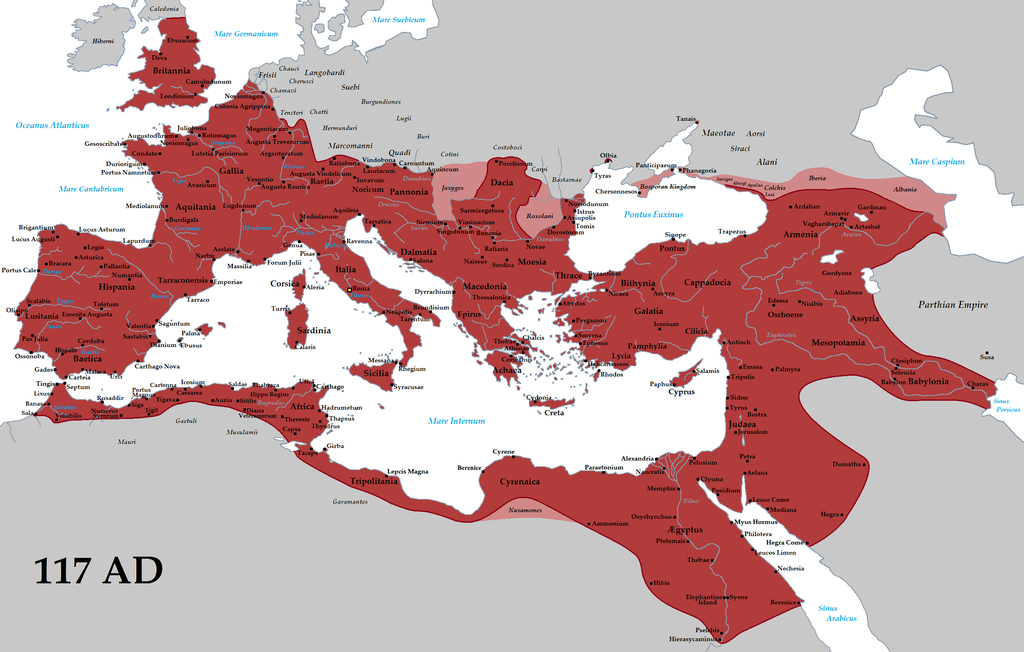You are using an out of date browser. It may not display this or other websites correctly.
You should upgrade or use an alternative browser.
You should upgrade or use an alternative browser.
Consequences of Diversity
- Thread starter Aldarion
- Start date
More options
Who Replied?Yinko
Well-known member
Makes sense, if you view it from a particular social and political lens. If you think of political systems as naturally arising from forms of free-association within social groups, then the strongest and best run systems will be ones with the least friction, where most people naturally agree on how to act, homogeneous social settings.
Now, I said that political systems "naturally" arise this way, but of course no current political system in the developed world is at all natural, they are contrived. If the pattern of the naturally rising form gives rise to nations and estates, then the contrived form we have today gives rise to states. Describing the difference between estates, nations and states would be a whole big rant, so I won't bother. But good quote.
Now, I said that political systems "naturally" arise this way, but of course no current political system in the developed world is at all natural, they are contrived. If the pattern of the naturally rising form gives rise to nations and estates, then the contrived form we have today gives rise to states. Describing the difference between estates, nations and states would be a whole big rant, so I won't bother. But good quote.
King Krávoka
An infection of Your universe.
This is a new low for the supposed essay forum.
Aldarion
Neoreactionary Monarchist
It say philosophy and essays. This fits into philosophy.This is a new low for the supposed essay forum.
And you should look at other threads here...
Simonbob
Well-known member
Note, a very large part of current political talk is about setting one group against another.This is a new low for the supposed essay forum.
Some of that's Left/Right, but a bunch is racial and/or cultural.
King Krávoka
An infection of Your universe.
Most of them are longform even if they're videos or reposted articles, not just a random picture you found on reddit. Wouldn't be surprised if your next thread was a Wojak comic.And you should look at other threads here...
If you're going to quote Aristotle, it's worth pointing out that Aristotle also held that the city took precedence over the family, the family over the individual, and that the fundamental purpose of the city was to enable its highest and most valuable citizens the possibility of living a good and virtuous life. In particular, he proposed a "mathematical" system of voting in which every voter cast a vote, but that those votes were systematically weighted so that the votes of the meritorious nobility had much greater value than those of the less worthy common citizens.
Also worth pointing out that pretty much everything Aristotle ever said about the biology, medicine, and in general the physical sciences is categorically wrong. Which may, perhaps, incline one to consider that his more theoretical opinions should be taken with several grains of salt.
Also worth pointing out that pretty much everything Aristotle ever said about the biology, medicine, and in general the physical sciences is categorically wrong. Which may, perhaps, incline one to consider that his more theoretical opinions should be taken with several grains of salt.
Lord Sovereign
The resident Britbong
Aldarion
Neoreactionary Monarchist
Difference is however that Romans deliberately avoided having different tribes / ethnicities mix, and cities where that did happen (specifically, large port cities such as Rome and Constantinople) were well known as hotbeds of crime.I mean multi-cultural societies often run into quite a bit of bother.
But…multi-ethnic ones can achieve a surprising grandeur if properly united.
MUSIC:
IMAGE:

(FVCKING WEEPS IN IMPERIVM FOR WHAT WAS)
So you have to differentiate between multi-ethnic societies (e.g. Roman Empire, quite few medieval kingdoms) and societies practicing DEEVERZEETAY.
Lord Sovereign
The resident Britbong
Difference is however that Romans deliberately avoided having different tribes / ethnicities mix, and cities where that did happen (specifically, large port cities such as Rome and Constantinople) were well known as hotbeds of crime.
So you have to differentiate between multi-ethnic societies (e.g. Roman Empire, quite few medieval kingdoms) and societies practicing DEEVERZEETAY.
From the borders of Scotland to the sands of Arabia, there were those who called themselves Roman. Especially after Caracalla'a reforms, that sounds multi-ethnic to me.
Although that did come with the condition of the abject supremacy of the Emperor and Roman law, something modern progressives cannot tolerate.
Buba
A total creep
???From the borders of Scotland to the sands of Arabia, there were those who called themselves Roman. Especially after Caracalla'a reforms, that sounds multi-ethnic to me.
If they called themselves Romans, weren't they a single ethnicity?
I don't get it ...
In particular, he proposed a "mathematical" system of voting in which every voter cast a vote, but that those votes were systematically weighted so that the votes of the meritorious nobility had much greater value than those of the less worthy common citizens.
Sounds sensible. I still weep over the dumping of unequal voting and electoral curiae ...
Lord Sovereign
The resident Britbong
???
If they called themselves Romans, weren't they a single ethnicity?
I don't get it ...
"Roman" became the most successful imperial identity in history. To the point where, during the First World War, when some allied troops landed on a quiet Greek island, the people they encountered identified themselves as "rhomaion" even so very long after the Imperium fell.
Aldarion
Neoreactionary Monarchist
That means that they accepted a single political identity. And possibly a single ethnic identity as well. In neither case does it prove that Romans had in fact implemented modern leftist idea of a "diverse" society.From the borders of Scotland to the sands of Arabia, there were those who called themselves Roman. Especially after Caracalla'a reforms, that sounds multi-ethnic to me.
Although that did come with the condition of the abject supremacy of the Emperor and Roman law, something modern progressives cannot tolerate.
Lord Sovereign
The resident Britbong
That means that they accepted a single political identity. And possibly a single ethnic identity as well. In neither case does it prove that Romans had in fact implemented modern leftist idea of a "diverse" society.
The Roman Empire was closer to "bi-cultural" than anything else. Roman citizens in the provinces never quite forgot the people they came from and their ways (as evidenced by the empire's embracing of foreign gods), but considered themselves Roman first and foremost.
Now put your knee jerk away. Absolutely nowhere did I say it was anywhere near the modern conception of a "diverse" society. Hence why the Imperium Romanum reigned for centuries, whilst we're coming apart at the seams after a mere few decades.
Every other philosopher was wrong about science.If you're going to quote Aristotle, it's worth pointing out that Aristotle also held that the city took precedence over the family, the family over the individual, and that the fundamental purpose of the city was to enable its highest and most valuable citizens the possibility of living a good and virtuous life. In particular, he proposed a "mathematical" system of voting in which every voter cast a vote, but that those votes were systematically weighted so that the votes of the meritorious nobility had much greater value than those of the less worthy common citizens.
Also worth pointing out that pretty much everything Aristotle ever said about the biology, medicine, and in general the physical sciences is categorically wrong. Which may, perhaps, incline one to consider that his more theoretical opinions should be taken with several grains of salt.
And,most important thing which Aristotle teach us is Realism - world really exist,is not our imagination.
Truth exist and could be recognized.
Those are basic of our cyvilization,denied by our enemies when they want destroy us.
They start blabbing about Truth not existing,or even reality do not existing.
When you meet such creatures,knew that you meet slaves of ENEMY.
Sergeant Foley
Well-known member
What's wrong with racial diversity in sports, entertainment, news stations, etc.,?
Yes and no. Aristotle's metaphysical views were an evolution of Plato's theory of "form", and held that reality did exist, but that every physical thing (ousia) was made up of a combination of physical matter and immaterial form, with the immaterial form being the more important of the two. To properly understand reality, Aristotle held, one should make systematic observation of the matter objects in the world in order to discern the underlying form; but once you understood the proper form of things, this understanding overrode the observed facts, since the physical matter was only an imperfect reflection of the perfect form.Every other philosopher was wrong about science.
And,most important thing which Aristotle teach us is Realism - world really exist,is not our imagination.
Truth exist and could be recognized.
Thus, Aristotle's views didn't stand alone (they very much were derivative of Plato's), and while they did make for the first glimmers of science, they were also still firmly anti-scientific, given that the bottom line was, "My beautiful theory overrides your petty reality!"
Last edited:
Aldarion
Neoreactionary Monarchist
Right now, you are saying literally what I wrote back in my initial response.The Roman Empire was closer to "bi-cultural" than anything else. Roman citizens in the provinces never quite forgot the people they came from and their ways (as evidenced by the empire's embracing of foreign gods), but considered themselves Roman first and foremost.
Now put your knee jerk away. Absolutely nowhere did I say it was anywhere near the modern conception of a "diverse" society. Hence why the Imperium Romanum reigned for centuries, whilst we're coming apart at the seams after a mere few decades.
Users who are viewing this thread
Total: 2 (members: 0, guests: 2)

